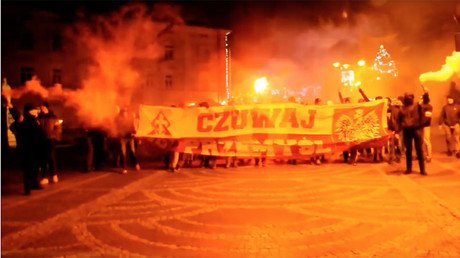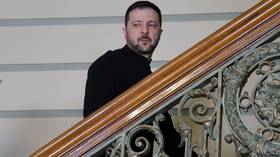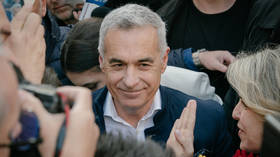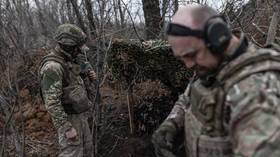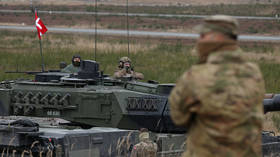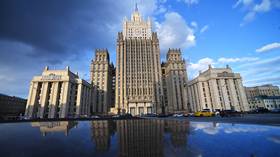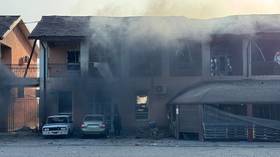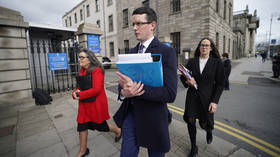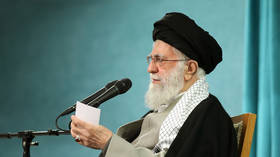Ukrainian nationalists hold torchlit march in Kiev to mark anniversary of Nazi collaborator Bandera
More than 1,000 Ukrainian nationalists have taken to the streets of Kiev carrying torches to commemorate the 108th anniversary of the birth of Stepan Bandera, a nationalist leader linked to Nazi Germany.
Hundreds of people on the march are supporters of the Right Sector group and far-right Svoboda (Freedom) party, according to RIA Novosti.
The march was set to end with a public demonstration on Kiev’s central Independence Square (Maidan square). The crowds were seen waving Svoboda flags and banners reading: “Nationalism is our religion. Stepan Bandera is our prophet.”
“Activists… are being protected by national police soldiers who keep them away from cars moving along the street. A young girl is traditionally leading the demonstration, carrying a portrait of Bandera,” Ukraine’s UNIAN news agency reported.
Previously, Kiev police said that the march would be guarded by 700 law enforcement officers, including 250 National Guard soldiers.
Similar marches have also taken place in other Ukrainian cities as well, with hundreds taking part.
Bandera is a controversial WWII figure who led the militant army of the Organization of Ukrainian Nationalists (OUN) and worked in cooperation with the Nazi German forces. However, later he was arrested by his Nazi allies and sent to a concentration camp.
In 1941 Bandera called on the Ukrainians to help the Nazis destroy Moscow and resist the ruling Soviet government. He was the head of the Ukrainian Insurgent Army (UPA) created in 1942 by a faction of the OUN and fought against the Armia Krajowa of Poland and the Red Army in Western Ukraine.
READ MORE: Fireworks, smoke-bombs in Kiev as far-right marches on national holiday
When the war was over, Bandera kept trying to undermine the Soviet Union policies with the help of the UPA. He was killed by a Soviet agent in 1959.
In 2010 Ukraine’s former President Viktor Yushchenko conferred the title of “Hero of Ukraine” upon Bandera. However, the decision was blocked by the Donetsk administrative court, which ruled it was unlawful. Yushchenko called the annulment “a gross error.”
Russia has repeatedly condemned Ukraine’s attempts to whitewash the names of the nationalists who openly worked along with the Nazis.
